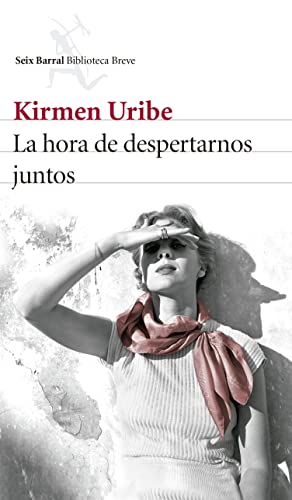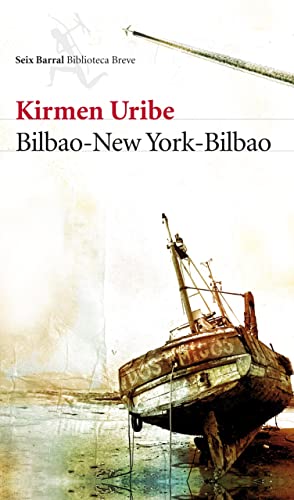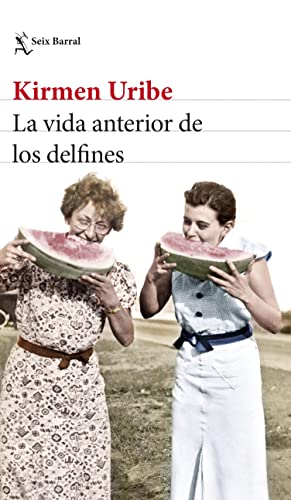From the narrative in Basque to the world. Kirmen Uribe's work, at least in its novelistic part (it is also profuse in poetry and children's literature) transmits imaginaries, history, mythology and all that heritage that really makes the people (in this case the Basques) an entity from which to do literary anthropology.
But beyond specific locations and such prolific references in stories to tell, the question is how to tell it. And that is where Kirmen shines with a dynamic but deep style, neat in the details that blend us with the characters, accurate in the necessary descriptions and extensive in the experiences that energize the stories.
While Fernando Aramburu, when he looks home, he draws on more recent scenery with frenetic actions loaded with sociopolitical components, Kirmen Uribe adorns it with mythological aspects, with beliefs or ancestral cultural references that turn his novels into epic and lyrical songs for life in the most remote contexts. adverse.
Top 3 recommended novels by Kirmen Uribe
The time to wake up together
The only homeland that cannot be abandoned, not even in the worst case, is the family and the memory of a home. Existence without that reference turns us into exiled souls, into wanderers without a destination. This story teaches us precisely that, the meaning of existence in those hard days of that Spain of the XNUMXth century.
Karmele Urresti was surprised by the civil war in her native Ondarroa. While the population flees into exile, she decides to stay healing the wounded and trying to free her father, who has been imprisoned. At the end of the war, she must leave her land and go to France, where she becomes part of the Basque cultural embassy. There she meets the man who will be her husband, the musician Txomin Letamendi. Together they travel through half of Europe until, about to fall Paris into the hands of the Germans, they flee to Venezuela.
But History breaks into his life again. When Txomin decides to join the Basque secret services, the family returns to Europe in the middle of World War II, where he carries out espionage work against the Nazis until he is arrested in Barcelona, under a dictatorship that he will not survive. Karmele will have to take a risk and leave, alone this time, with the blind hope of who she leaves behind the most precious thing. The great novel about Basque, Spanish and European history from the XNUMXth century to the present day.
Bilbao-New York-Bilbao
Autofiction is one of the spaces in which Kirmen Uribe moves like a fish in water. Introspection towards the genealogical to end up composing those books that feel like almost spiritual debts and that burst with the intensity of the testimony.
When Liborio Uribe found out he was going to die, he wanted to see a painting by Aurelio Arteta one last time. His whole life was spent on the high seas, he sailed the waters aboard the Dos amigos and, like his son José, skipper of the Toki Argia, he starred in unforgettable stories that have been forever forgotten.
Years later and in front of that same painting, the grandson Kirmen, narrator and poet, traces those family stories to write a novel. Bilbao-New York-Bilbao takes place during a flight between Bilbao airport and JFK in New York, and tells the story of three generations of the same family.
Through letters, diaries, e-mails, poems and dictionaries, he creates a mosaic of memories and narratives that make up a tribute to a world that is practically extinct, as well as a hymn to the continuity of life. With this novel, Kirmen Uribe debuted dazzlingly on the Spanish literary scene. Considered one of the greatest innovators of literature in the Basque language, he delves into the waters of autofiction with a rich, complex and suggestive writing that is truly moving.
The former life of dolphins
According to the beliefs of the first Basques, those who fell in love with lamias, mythological beings similar in appearance to mermaids, became dolphins. It was the price they had to pay for their daring. A radical change that happened overnight, like the start of a journey to an uncertain destination. In a similar way, the life of migrants also changes when they cross the border of their country and, once undertaken, the path becomes another, very different from the one imagined.
Through the pages of The Previous Life of Dolphins, three stories intersect: the fate of the unfinished book that the feminist Edith Wynner dedicated to Rosika Schwimmer, activist, pacifist and suffragette nominated on several occasions for the Nobel Peace Prize, as well as the relationship between these two extraordinary women during the first half of the XNUMXth century; the experiences of a Basque immigrant family in present-day New York against the political and social background of the stormy end of the Trump era, and the reminiscences of the friendship between two girls in the small coastal town where the narrator grew up with a group of women revolutionaries in the XNUMXs and XNUMXs.
Exciting, tender and poetic, full of secrets to discover, deliciously written and terribly human, The Previous Life of Dolphins is Kirmen Uribe's most ambitious novel, where he masterfully mixes family history, historical events and the magic of folklore again. and Basque popular histories.



